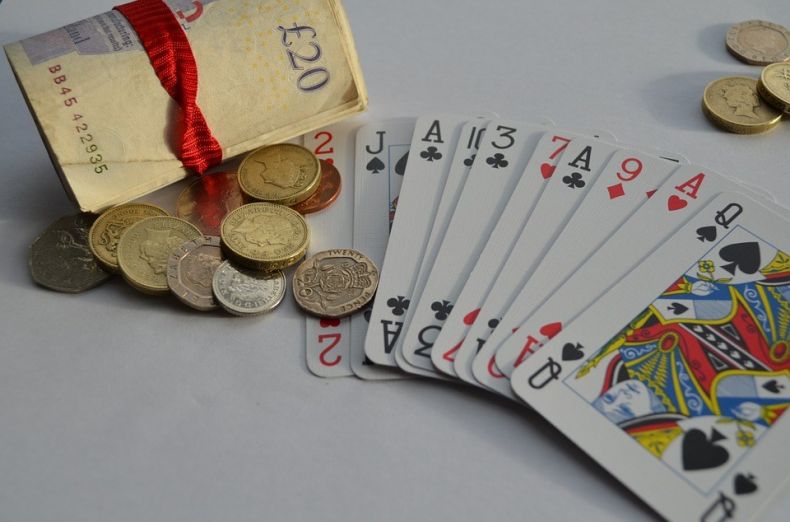- How Can You Tell If You Have A Gambling Problem
- How To Determine If You Have A Gambling Problem Even
- How To Determine If You Have A Gambling Problem Involving
- How To Determine If You Have A Gambling Problem Finding
Following these tips can help you to stay safe if you choose to gamble.
1. Don't think of gambling as a way to make money
The venue is using gambling to make money. It's not designed to work the other way around. Over time you will give away more money than you receive! Think of gambling as an entertainment expense – just like buying a movie ticket.
How Can You Tell If You Have A Gambling Problem

2. Only gamble with money you can afford to lose
Gamble within your weekly entertainment budget, not with your phone bill or rent budget.
People who feel guilty when they place bets may also have a gambling problem. Others who have felt anxiety or stress about their gambling are also likely to be suffering from addiction. Various online questionnaires are available to anyone who would like to check whether or not they might have a gambling addiction. If you start missing work, or social events because of your gambling obsession, it is safe to say you are in a hole. One common thread in every story of betting addiction is the breakdown of human relationships. Tony drifted apart from his wife; Jason did the same with every woman he crossed paths with romantically.
3. Set a money limit in advance
Decide how much you can afford to lose before you go to play. When it's gone – it's over! If you win, you've been lucky, but don't be disappointed if your luck doesn't continue.
4. Set a time limit in advance
It's easy to lose track of time when you're gambling. Set a time limit or alarm, and when time's up – quit! Odds are that the more time you spend gambling, the more money you will lose.
5. Never chase your losses
If you lose your set money limit and then try to win some of it back before you leave, then you haven't really set a money limit. Chasing your losses will usually just lead to bigger and bigger losses.
6. Don't gamble when you're depressed or upset
Decision-making can be more difficult when you're stressed or emotionally upset. Make sure you only gamble when you're feeling happy and clear headed.
7. Balance gambling with other activities
When gambling becomes your only form of entertainment, it's unlikely that you're still just gambling for the fun of it, and your gambling may even be a problem. Make sure gambling isn't your only pastime.
8. Don't take your bank card with you
This is a good way to safeguard your money limit and not let being 'in the moment' warp your judgment.
9. Take frequent breaks
Gambling continuously can cause you to lose track of time and perspective. Step out for some air or a bite to eat at regular intervals.
How To Determine If You Have A Gambling Problem Even
10. Don't drink or use drugs when gambling
Drugs and alcohol cloud judgment, and good judgment stands as your main line of defence against letting gambling get out of control.

Gambling can be an exciting retreat from life’s daily stresses, but when a few hours at the casino turns into days, and a $100 stake becomes thousands of dollars, it is no longer fun and games. As with drinking alcohol, gambling can become a serious addiction when it interferes with your life. An estimated 85 percent of US adults have gambled in their lifetimes, making this hobby one of the most popular activities. Here are four warning signs that you or someone you know has a gambling addiction, as well as tips on how to treat the problem.
Your Friends and Family Are Worried
If you are reading this because you’re concerned about a friend or relative’s gambling, that person already has the first warning sign. It is sometimes difficult to see that you have a problem until someone else points it out. The first reaction you might have is to become defensive, but try to recognize that the people around you are trying to help. Chances are, if your friend or relative is telling you that you have a problem, they will also be willing to support you in beating your addiction. See Our No Deposit List
You Hide Your Gambling
What if your friends and family don’t know about your gambling because you keep it hidden? Hiding your gambling from others says that you are ashamed of your habits or want to keep your friends and family from knowing how much you gamble. Keeping your gambling a secret doesn’t always involve lying about gambling altogether. If people ask you how much you gamble and you tell them you spent less time or money on it than you actually did, this could be a sign of addiction. Stay honest with the people around you. Those closest to you will tell you when they think you’ve gone overboard and will hold you accountable to prevent bad habits from forming.
You Don’t Know When to Stop
Gambling addicts do not have to gamble every day, or even frequently, to have a problem. People who gamble once a year could be addicts if they aren’t able to control how much time or money they spend after they start. It can be difficult to walk away from a table or slot machine during a losing streak because the chance of winning your money back in the next round is temptingly close. This is why giving yourself a gambling limit before you set foot in a casino or log in online is important. If you set a limit for yourself and you consistently break it, you might have an addiction.
You Gamble After Going Broke
This is an extreme version of breaking your gambling limits. This is not just spending an extra hour or two in the casino after you said you would leave, or making one more bet after you reach your daily limit. In severe stages of gambling addiction, some addicts continue to gamble even when they’ve lost everything they have. It starts with going over your gambling budget, then can turn into spending your spouse’s money, children’s college fund or money meant to pay bills. Many addicts believe that if they spend more money on gambling, they can win enough to make the other losses worthwhile. This cycle isn’t broken until the addict decides to stop altogether.
How To Determine If You Have A Gambling Problem Involving

What to Do About Your Addiction
Gambling addictions can get out of control fast, and often without addicts realizing they have a problem. Thankfully, many resources exist to help addicts resolve their issues and develop healthier habits. Gamblers Anonymous programs help addicts overcome their addiction for free, providing counseling and support in a group setting. In addition to these support groups, addicts who need extra support can hire a therapist for cognitive behavioral therapy. Gambling is similar to drug addiction in that it stimulates certain areas of the brain as you play. Therapists treat the problem by asking patients to realize where their problem comes from and how to fix it. You can also put other people in charge of your money, stay out of places where people gamble and keep your free time minimal to prevent temptation. Also check out Ukash accepting brands
Source:https://www.helpguide.org/articles/addictions/gambling-addiction-and-problem-gambling.htm